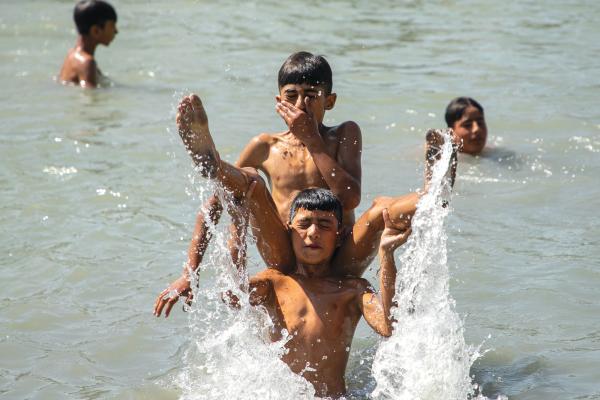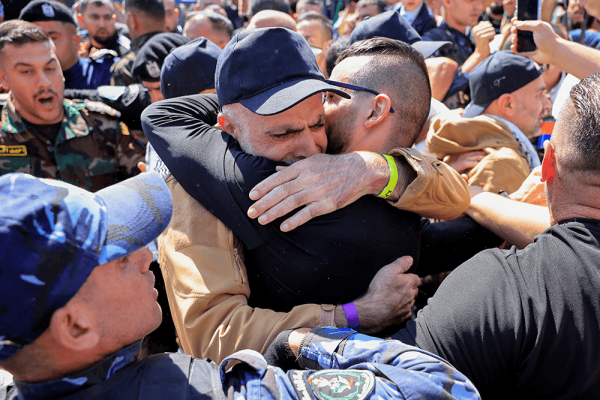MEDELLIN, COLOMBIA – The government and Catholic Church in El Salvador are confronting another new, challenging era in the country’s already rocky past: the response to COVID-19.
Priests, doctors, and journalists there told Sojourners the Central American country of just 6 million people has had one of the most robust responses in the world to COVID-19, the disease caused by the SARS-CoV-2 virus.
According to the World Health Organization’s (WHO) update on Monday, El Salvador has 24 cases in total, after the first cases were reported by the Salvadorian government on March 18.
Juan José Herrera is a doctor in Metapan, a municipality near El Salvador’s border with Guatemala and Honduras. He said since WHO announced a global pandemic, the government of El Salvador, led by President Nayib Bukele, began to alert the population to the dangers of the disease, and it was one of the first countries to close land borders and deny entry to foreigners by air.
Herrera said before the borders closed, temperatures were taken and the administration instituted a mandatory quarantine period for anyone coming in, even before the first cases were reported.
“Any person who wished to enter the country before the total closure of the borders went through a mandatory period of quarantine carried out in various centers around the country,” Herrera said, adding that confirmation tests for COVID-19 are conducted at the Zaldaña hospital in the Salvadorian capital of San Salvador.
“There has been health surveillance, as well as police and military at all entry points — air, land and sea,” he said, adding although there are many there are many rural “blind spots” on El Salvador's borders with Honduras, Guatemala, and Nicaragua, authorities have ramped up surveillance to make sure no one can enter the country without detection.
According to Herrera, a key aspect of the response has been the process of turning a massive convention and exhibition facility – the International Center for Fairs and Conventions – into a centralized temporary hospital for COVID-19 cases by the end of April or early May.
“No country in the world has an advantage when it comes to this disease, much less El Salvador, being a developing country with a health system deficient in terms of state-of-the-art equipment,” he said.
Herrera said the center will have a 300-bed ICU complete with mechanical ventilators and 2,000 general beds.
“I personally think that the preventive measures that have been taken have given good results: The cases of coronavirus are low in comparison with other countries,” he said. ”Since before the disease attacked, El Salvador was preparing the population and letting them know about the severity and the measures that would have to be taken to slow the progress of the disease in the country.”
While some have raised concerns about freedom of movement and assembly in the country, its number of infections remains very low. This contrasts sharply with Mexico, where as of Tuesday they already had 1,096 cases including 28 fatalities, and Panama with 1,074 cases and 26 fatalities.
Despite all of El Salvador's measures, Herrera said that due to asymptomatic COVID-19 carriers, El Savlador is expecting more cases.
“Due to the highly contagious nature of the virus and the incubation period around 15 days, it is likely that this week and the next week there is an increase in the number of cases,” he said.
The Church makes changes
Since colonization, the Catholic Church has shaped and been shaped by El Salvador. On March, 24 1980, just over 40 years ago, social justice advocate Archbishop Oscar Romero was murdered while celebrating Mass in San Salvador. He was later canonized in 2018.
According to a 2018 U.S. State Department report, 45.9 percent of the population identifies as Roman Catholic, 35.5 percent as evangelical Protestant, and 14.3 percent with no religious affiliation.
Herrera said that El Salvador is a devoutly religious country so the position of the different religious sects, including the Catholic Church, is supremely important for the general population to maintain a positive attitude in the face of adversity.
“Religious leaders have complied and urged the population to heed the recommendations given by the Ministry of Health,” Herrera said.
Javier Rivera, a Honduran Dominican friar and pastor of the El Rosario Church in the historical center of the capital city of San Salvador, says while the bishops there were initially slow to send directions to the parish priests, there are now a range of measures in place, adding that the pope has been sending messages as well and some guidelines for the celebrations of Lent and Easter.
“The Church has reacted late but is already aware of the risk that this virus brings to its faithful,” he said, ”In this case, the American Church must also take the most extreme measures to protect its worshippers.”
Rivera said the response came in stages. Initially, churches limited Holy Communion practices and refrained from passing the peace. Then, churches closed mid-March, and parishes began sending schedules to celebrate Mass through Facebook Live.
Rivera said the live-streaming of Masses in lieu of in-person gatherings wasn’t the only use of technology.
“In this archdiocese we have a group of WhatsApp in which we are all priests including the archbishop and the cardinal, in which important information is shared,” he said.
According to Rivera, the COVID-19 crisis has also affected his pastoral work.
“Because of the risk of contagion from this pandemic, we do not personally care for the sick, nor can we bring Communion to them, especially if they are older people – those with the highest risk,” he said.
Rivera said the government doesn’t allow anyone, including clergy, to walk on the street unless it is something very urgent.
“We must carry a letter of permission from the superior in case the police stop us,” he said. “In my community, I am in charge of shopping for food and medicine, but the others do not come out.”
One crisis in place of another
Will Monterroza, a Salvadorian journalist and editor of science news site El Informe news, said COVID-19 has somewhat put “on-hold” a political crisis brewing since early February over the balance of power between the legislature and President Bukele, elected in 2019.
A former mayor, Bukele came into office in June 2019 on a platform of lowering violence and taking on the country’s powerful gangs. But on Feb. 9, he entered the parliament with armed troops in a bid to get lawmakers to approve a $109 million loan from the Central American Bank for Economic Integration to fund police equipment including drones and vehicles. Opposition lawmakers labeled this tactic as an “attempted coup."
Even though political tensions are at a lower ebb than earlier in the year, Monterroza said friction continues, with a new outburst of chaos emerging between the two power blocs on Thursday.
Monterroza said that in the meantime, the government’s actions have been decisive, if drastic.
“If the whole world, including China, Italy, and the USA are now entering a crisis with their highly developed health systems, imagine what could happen here in El Salvador,” he said. “With this reference point, the president decided to take very strong measures – it is a question of political leadership.”
But there is a potential human rights cost to the COVID-19 response. Monterroza said the police and military have been empowered by the president to detain anyone who is not complying with a national quarantine that is keeping residents confined to their homes except for essential workers and those going on grocery runs.
“If I went to the street but I didn't have a letter from my workplace or other justification for being out of the house, I would be taken off the street and sent to a quarantine center for 30 days, just like that,” he said.
As with the rest of the world, no one knows what lies ahead, but Herrera sees a key role for the Church in El Salvador’s future.
“Even with everything being done virtually, the parishioners are keeping and strengthening their faith, and trust that with the help of the Lord, we will move forward as a nation,” he said.
Got something to say about what you're reading? We value your feedback!






